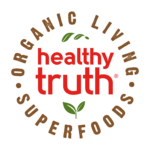We know there are a lot of benefits from eating moderate amounts of our favorite snacks including cashews, almonds, and sunflower seeds. But what about sprouted nuts and seeds? What’s the difference between the sprouted variation when compared to raw or roasted nuts? These are common and necessary questions since the term “sprouted” is getting a lot of attention these days. It can get a little confusing at times, but we’re going to break it down so that you never have to wonder again. Because there are actually tons of reasons why you should be reaching for the sprouted variation instead of the regular kind.
What Are Sprouted Nuts and Seeds?
Sprouted is a bit of a confusing word when it comes to nuts and seeds. Does it mean something is sprouting or growing from our beloved cashews? No, not exactly. Sprouting is the practice of germinating seeds (this includes nuts, grains, beans, and legumes) so your body can absorb the maximum amount of nutrients from them. This is done by soaking them for an extended period of time (usually between 12-24 hours).
Our bodies weren’t actually designed to break down a lot of the antinutrients in plant compounds, which can result in indigestion, inflammation, and poor autoimmune reactions like leaky gut syndrome. These antinutrients, including phytic acid and lectins, block vitamins, minerals, and many other nutrients (like zinc, calcium, iron, and protein) from being absorbed. And these are the very things humans need to thrive. But the sprouting process destroys the antinutrients so they can’t wreak havoc on the body, which leads us to the long list of benefits we get from sprouted nuts.
What Are the Benefits of Eating Sprouted Nuts and Seeds?
Settle in because there’s a long list of scientifically proven positive effects sprouted nuts and seeds have on the body. First and foremost, studies have shown the sprouting process significantly reduces the number of antinutrients like phytic acid. “Phytic acid prevents the body form assimilating the nutrients found in nuts and seeds,” explains Bruce Namenson, Founder and CCO of Healthy Truth. “It is biologically necessary to safeguard the nut or seed until proper growing conditions are present. The human body does not produce the enzyme phytase to break down the acid.”
That’s precisely why the nuts and seeds are soaked. This process This process “washes away phytic acid and dried at low temperatures (115-118 degrees Farenheit) to preserve the integrity of the nutrients and activate live enzymes. Your body can then assimilate and utilize the nutrients,” Bruce continues. When you eat raw or roasted nuts, the anti-nutrients are still present or all the nutrients have been cooked out. Sprouted nuts and seeds offer way more nutrients and energy than their counterparts.
The sprouting process also unlocks enzymes that make it much easier to digest and process in the body. This means less inflammation and less bloating. Studies have even known that the digestibility of storage proteins and starches improved because of the partial hydrolysis interactions that happen in the sprouting process.
You also get access to more protein when you eat sprouted nuts and seeds. Sprouting turns complex proteins into simple amino acids and you get a higher concentration of lysine and tryptophan.
All of these reasons are just the start of why Healthy Truth offers a wide variety of Sprouted Nut Clusters. All of our nuts are soaked in triple-filtered water, then dehydrated at a low temperature to protect the integrity of all the vital nutrients. Not only are our Sprouted Nuts and Nut Clusters busting with nutrients, but they taste incredible, complete with a light, crunchy texture. Try our famous Pizza Nut Clusters. They’re a perfect replacement for your favorite pizza-flavored chips.
How Often Should You Eat Sprouted Nuts and Seeds?
There isn’t one right answer for this question, but the general answer is, every day. You can consume sprouted nuts and seeds each day in a moderate amount in order to get all the benefits from sprouted nuts and seeds. The recommended dosage of nuts and seeds is one ounce, about 28 grams per day. This is roughly one handful. But “handful” isn’t meant to be taken liberally. If you go overboard with nuts, which are actually quite calorie-dense, you could find yourself in a calorie surplus that might lead to weight gain. Everything in moderation, including sprouted snacks.
